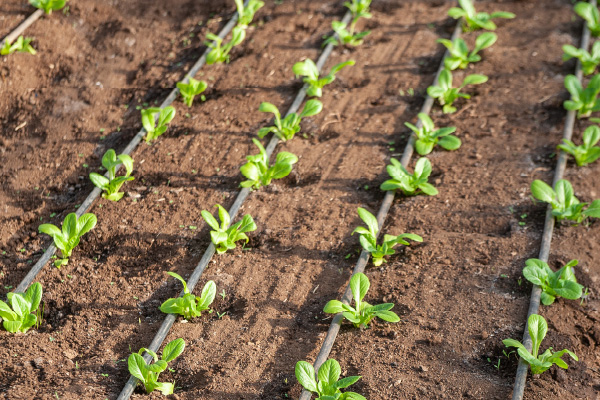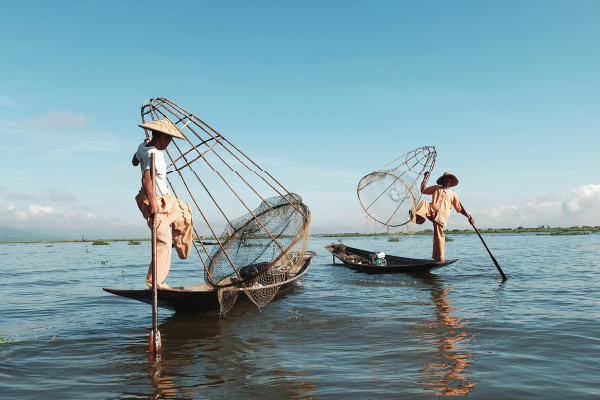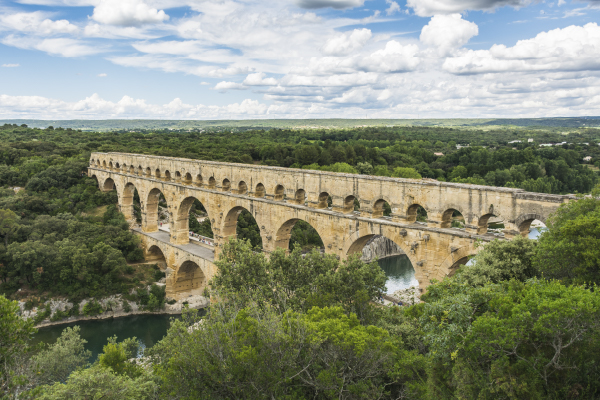Water is essential to life on Earth. It makes up over 50% of our bodies and covers about 71% of the Earth's surface. Only 2.5% of water is fresh, suitable for drinking, agriculture, and most industrial uses. Water is a driving force for people, economies and nature and the foundation of our food. Indeed, agriculture accounts for 72% of global freshwater withdrawals, but like all natural resources, fresh water is not infinite.
Rapid population growth, urbanization, economic development, and climate change are putting the planet’s water resources under increasing stress. At the same time, freshwater resources per person have declined 20% in the past decades and water availability and quality are deteriorating fast due to decades of poor use and management, over extraction of groundwater, pollution and climate change. We risk stretching this precious resource to a point of no return.
Today, 2.4 billion people live in water-stressed countries. Many are smallholder farmers who already struggle to meet their daily needs, particularly women, Indigenous Peoples, migrants, and refugees. Competition for this priceless resource is increasing as water scarcity becomes an ever-increasing cause of conflict.
Around 600 million people who depend, at least partially, on aquatic food systems for a living are suffering the effects of pollution, ecosystem degradation, unsustainable practices and climate change.

We need to produce more food and other essential agricultural commodities with less water, while ensuring water is distributed equally, our aquatic food systems are preserved, and nobody is left behind.
Governments need to design science and evidence-based policies that capitalize on data, innovation and cross-sectoral coordination to better plan and manage water. They need to support these policies with increased investment, legislation, technologies and capacity development, while incentivizing farmers and the private sector to engage in integrated solutions for a more efficient use of water, and for its conservation.
We all need to stop taking water for granted and start improving the way we use it in our daily lives. What we eat, and how that food is produced all affect water. We can make a difference by choosing local, seasonal, and fresh foods, wasting less of it - even by reducing food waste, and finding safe ways to reuse it while preventing water pollution.
Together, we can take water action for the future of food, people, and the planet.
Water covers 71% of our planet’s surface. From oceans to lakes, rivers and estuaries, water bodies are home to flourishing ecosystems, hosting important habitats and a surprising wealth of biodiversity.
Over 600 million people depend on aquatic food systems for a living including small-scale fishers, fish farmers, fish processors, as well as their dependents. They are the backbone of coastal and inland communities, supporting local economies and influencing cultures worldwide.
Currently, we exploit almost 3 000 species in capture fisheries, and we cultivate over 650 of these species.

The diversity of aquatic food systems makes them a unique and essential source of nutrition and food security. Aquatic foods are increasingly recognized for their potential to combat malnutrition, due to rich essential nutrients such as omega-3 fatty acids, vitamins, and minerals that are vital for human health.
Preserving and safeguarding these aquatic ecosystems and the species they support is not just a responsibility, but a necessity for the well-being of our planet and its inhabitants.

Water is finite but it is an infinitely valuable natural resource. Without it, there would be no food and no life.
Centuries ago, the inventive nature of humankind spurred farmers to discover ways to irrigate crops, giving birth to agriculture and sedentary communities. This revolutionized how people produced food and gave rise to different civilizations around the world. It was not by chance that the first civilizations in Mesopotamia and Egypt flourished around this precious resource by ...
Collective action across 150 countries worldwide, in up to 50 languages, is what makes World Food Day one of the most celebrated days of the UN calendar. Hundreds of events and outreach activities bring together governments, municipalities, businesses, CSOs, the media, the public, even youth. They promote worldwide awareness of hunger and promote action for the future of food, people and the planet.
Together we can create a better, more sustainable food future for all. Make #WorldFoodDay YOUR day. Join the call by organizing an event or activity or show how you are taking action.
Contact us for more information at: